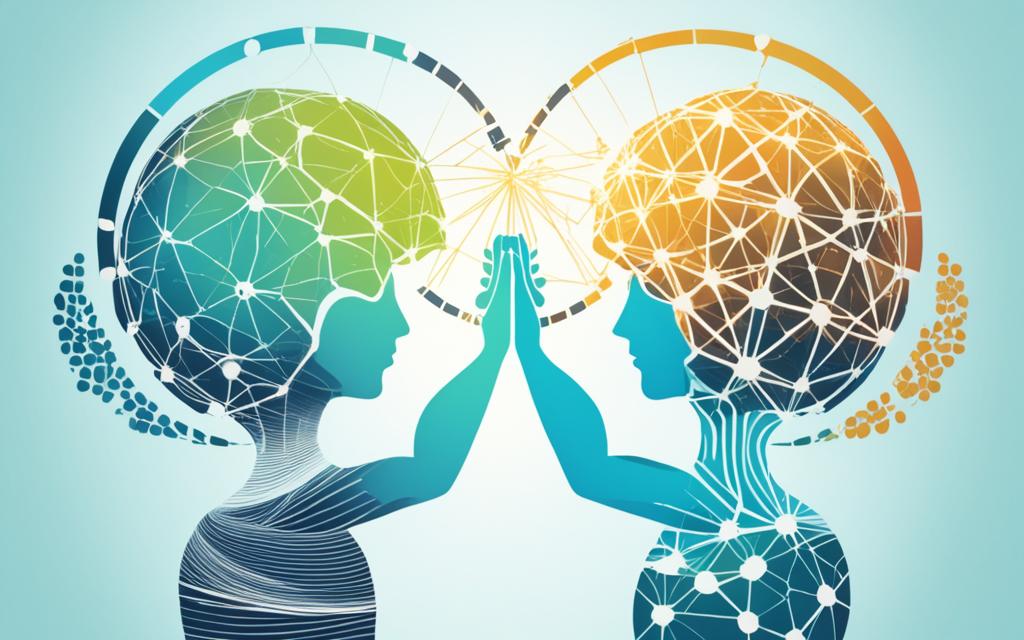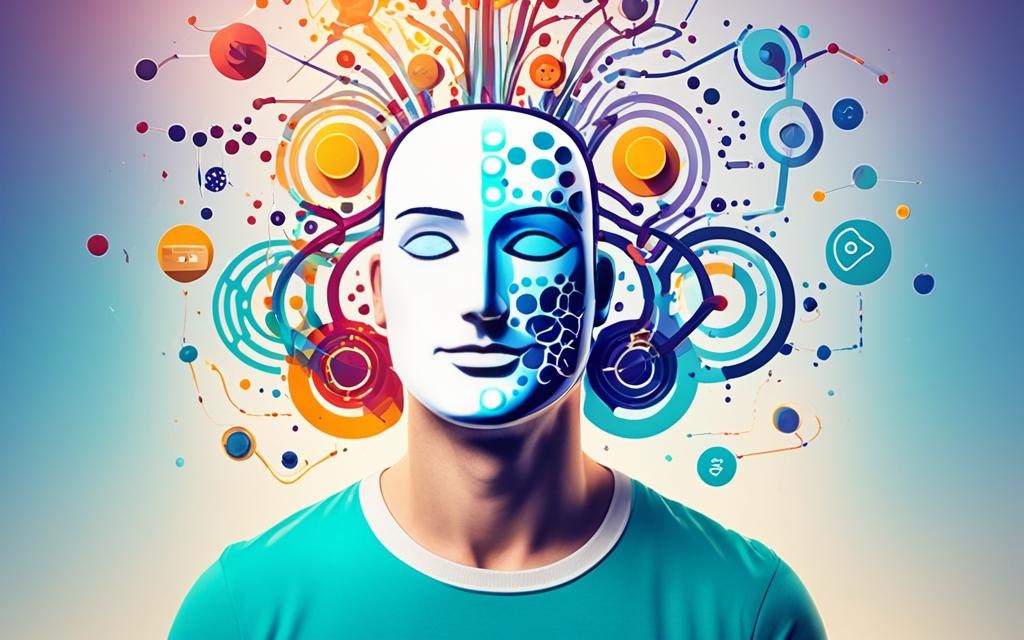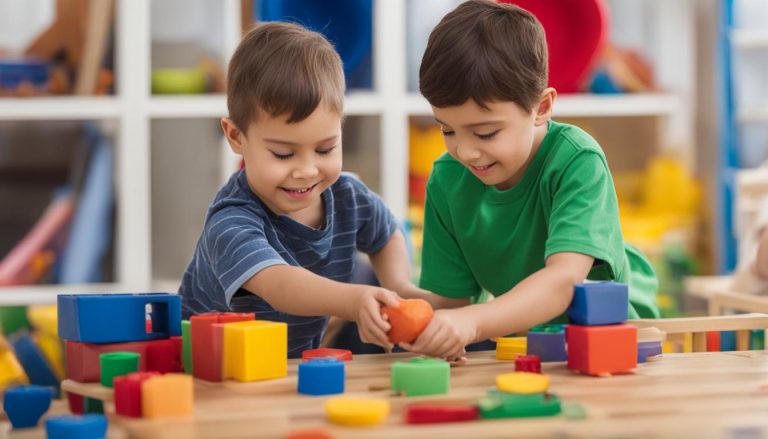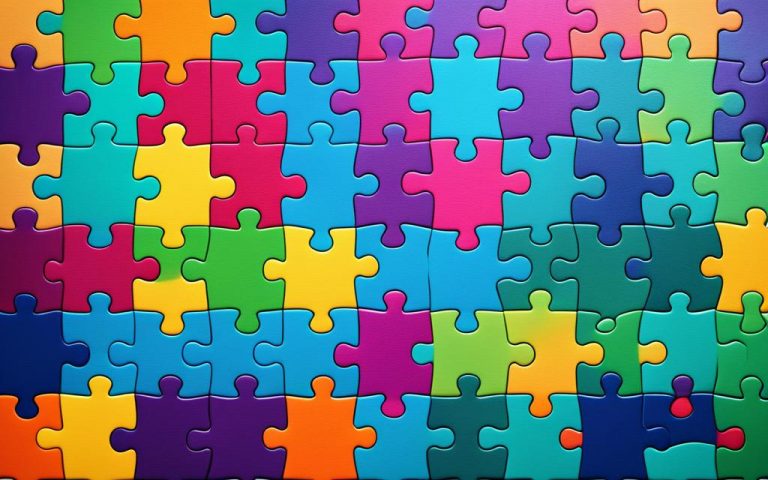How ChatGPT Impacts Your Health: A Comprehensive Guide
In the fast-changing world of conversational ai, ChatGPT is making big waves. It’s becoming a big part of our daily lives. This guide will help you see how it affects our mental health. We’ll talk about the good and not-so-good sides of using ai like ChatGPT.
ChatGPT and other virtual friends can make us feel better and help us talk. But, being with them too much can make us feel alone. It can be hard to make true friends. It’s important to keep some limits when talking to them.
Your well-being is very important. So, it’s key to use ChatGPT in a healthy way. You might find benefits of talking to it. But, there can be risks, too.
It’s good to know that talking to an AI is not the same as talking to a real friend. Finding a balance between real and AI friends is very important. This guide will give you all the info you need to use ChatGPT wisely. Let’s dive into how chatgpt can impact your health, giving you the tools to use it right.
Key Takeaways
- ChatGPT and other ai virtual companions can provide emotional support and companionship, but relying too heavily on them may lead to social isolation and difficulty forming genuine human connections.
- Maintaining healthy boundaries with language models is crucial for preserving emotional well-being and preventing potential drawbacks of relying on chatbots.
- Mental health and ai assistants have a complex relationship, with both potential benefits and risks to consider.
- Understanding the limitations of conversational AI and balancing virtual interactions with real-life connections is essential for overall mental health.
- This guide offers a comprehensive exploration of how chatgpt impacts your health, equipping readers with the knowledge to navigate this rapidly evolving technology responsibly.
The Rise of Conversational AI and ChatGPT
In recent years, artificial intelligence (AI) has seen big growth. ChatGPT has led the way as a top AI assistant. It’s changed how we talk to technology, using natural language.
What is ChatGPT and How Does It Work?
Anthropic built ChatGPT. It’s an AI assistant that talks like a human thanks to the latest in language processing and machine learning. Unlike old chatbots, ChatGPT can talk about many topics in a real and natural way.
The Growing Popularity of AI Assistants
ChatGPT and others like it are becoming really popular. We meet them as our digital helpers, for solving problems and even in schoolwork. Talking to machines has changed things for the better, making life smoother and more personal.
| Industry | Use Cases |
|---|---|
| Customer Service | Virtual assistants for product inquiries, support, and troubleshooting |
| Education | Interactive tutoring, personalized learning experiences, and homework assistance |
| Healthcare | Medical chatbots for symptom checking, appointment scheduling, and patient education |
| Creative Writing | AI-powered writing assistance, content generation, and ideation |
With ChatGPT and its pals getting better, they’re becoming part of our daily routines. We now connect with tech and info in new ways, thanks to them.
Mental Health and AI Assistants: The Pros and Cons
ChatGPT and other AI assistants are getting smarter. They do a lot to help but can also hurt our mental health. It’s important to look at both sides.
Potential Benefits of Interacting with AI Companions
Ai companions can be great. They provide support and it’s nice having someone to talk to. For those who find it hard to make friends, they can be a big help. They listen without judging and make people feel connected.
These ai companions are also helpful with many tasks. ChatGPT, for example, can answer questions and chat about lots of topics. This can make life easier and less stressful.
Drawbacks and Risks of Relying Too Much on Chatbots
Yet, using ai companions too much can be a problem. It might lead to being too attached or even addicted. People might choose them over real friends.
Also, AI can’t match real human connections. This might make people feel lonely or like something is missing. Expecting too much from ai assistants can lead to disappointment too.
“While conversational AI can provide a sense of connection, it’s crucial to maintain a balance between virtual and real-life interactions to nurture genuine, fulfilling relationships.” – Dr. Emily Anderson, Clinical Psychologist
| Potential Benefits | Potential Risks |
|---|---|
| Emotional support | Addiction and unhealthy attachment |
| Companionship | Social isolation |
| Task assistance | Unrealistic expectations |
| Information and knowledge | Lack of genuine human connection |
As AI grows, balancing its use is key. Engaging with ChatGPT and other AI tools can be good. But remember, true happiness comes from real, human relationships.
How ChatGPT Impacts Your Health: A Comprehensive Guide
Conversational AI, like ChatGPT, has brought up talk about its effect on our emotional well-being. These programs can provide emotional support and company. Still, it’s vital to set healthy boundaries with them.
Emotional Well-being and the Role of AI
AI assistants, such as ChatGPT, can give emotional support. They do this by listening without judgment and responding in a personalized way, thanks to their language processing abilities. But, we must not forget their limits and avoid depending on them too much for our emotional needs.
Interacting with AI can affect our mental health both positively and negatively. It can provide comfort and companionship for those who might feel alone. Yet, too much engagement with AI can lead to ignoring real human relationships and to social isolation.
Maintaining Healthy Boundaries with Language Models
It’s important to keep a balanced view and set healthy boundaries while using AI. Here are some tips:
- Remember that AI, no matter how sophisticated, can’t feel emotions or create deep relationships like humans do.
- Control the amount of time you spend talking to AI. Make efforts to invest in real-life social interactions and connections.
- Be cautious about sharing personal or confidential details with AI, due to possible privacy risks.
- If you start leaning on AI too much for emotional help, reach out to mental health professionals for guidance.
“AI is a valuable tool; however, we must keep in mind it’s not a replacement for genuine human connection,” says Dr. Emily Thompson, a clinical psychologist. “Striking a balance and setting boundaries is crucial for AI not to affect our emotional health negatively.”
Recognizing the place of AI and establishing clear expectations and limits allows us to enjoy the positives of AI, like ChatGPT. This approach also protects our mental health and nurtures real interpersonal relationships.
The Impact of ChatGPT on Social Interactions
Conversational AI, like ChatGPT, is changing how we connect with others. It raises questions about our real life connections. While these AI assistants can provide digital friendships, it’s vital we don’t forget about real, human connections.
Balancing Virtual and Real-Life Connections
ChatGPT and its counterparts are good for talking with, offering knowledge, and listening without judging. But, spending too much time with them can make us feel lonely. It might also make it hard to keep up with friends and loved ones.

It’s key to mix AI and human connections for a strong social life. AI can help with some things. But it can’t replace the feelings we get from being with others in person.
Cultivating strong interpersonal bonds, sharing experiences, and engaging in face-to-face communication are essential for emotional well-being and personal growth.
To make ChatGPT work well in your life, think about these tips:
- Set boundaries and limits on the time spent engaging with AI assistants.
- Prioritize quality time with friends, family, and loved ones.
- Engage in activities that foster real-life relationships, such as social gatherings, hobby groups, or community events.
- Use ChatGPT as a complement to human interactions, not a replacement.
With a balanced approach, you can get the best of both worlds. This means enjoying AI while keeping the importance of real relationships in focus.
Ethical Considerations Surrounding AI Assistants
As AI assistants like ChatGPT become more popular, it’s important to look at the ethical considerations. They bring up privacy concerns and data security issues. To handle these challenges, we need honest and clear actions.
Privacy and Data Security Concerns
The big talk about ai assistants includes the worry about user privacy and how data is handled. They learn from huge amounts of data, some of which might be private info that was found on the internet. Without proper protection, this can lead to privacy concerns and troubles with data security.
Moreover, interactions with AI could be kept and checked, creating more privacy concerns. It’s vital for tech companies to use strong safety methods and clear data rules. These must cover how data is gathered, saved, and used.
The Importance of Responsible AI Development
Creating AI like ChatGPT should also focus on ethical guidelines. This means being open about what these systems can and can’t do. It also includes how they make choices and handle any biases.
Developing AI responsibly also needs to set clear rules and ways to check the technology. This helps in avoiding spreading bad information or keeping harmful biases alive. It’s also important for AI makers, officials, ethicists, and the public to work together continually.
Integrating AI into Your Daily Life
Artificial intelligence (AI) is now a big part of our lives, and integrating ai in our daily life is full of benefits. A great example is ChatGPT, your talking AI helper. It can do a lot in practical applications.
Practical Applications of ChatGPT
ChatGPT helps us in many ways, becoming a key tool every day. It can do a lot, like:
- Task help: It manages your schedule, to-dos, and keeps you organized.
- Writing assistant: Generates creative ideas, stories, and content.
- Answer machine: Gives fast, correct info on different topics.
Setting Healthy Limits on AI Usage
It’s key to use ChatGPT and other AI tools wisely to not let them take over your life. Some tips to follow include:
- Set rules: Decide when to use ChatGPT. Don’t let it replace real human moments.
- Choose people first: Spend quality time with real people to grow strong connections.
- Take a breather: Sometimes, pause the use of AI and enjoy things offline.
“The key is to strike a balance between leveraging the power of AI and maintaining a healthy, well-rounded lifestyle,” says Dr. Emily Thompson, a leading psychologist specialized in technology and mental health.
Use ChatGPT wisely by knowing its practical applications, balanced with setting healthy limits on ai usage. This way, AI fits well into your daily life without harming your health or relationships.
The Future of AI and Its Impact on Well-being
Conversational AI tech is getting better all the time. It’s starting to make a real impact on our lives. This means we’ll see some big changes, both good and challenging, as AI grows.
Advancements in Conversational AI Technology
Conversational AI is improving quickly. This means AI can talk more like us. New tech lets AI read and speak like humans do.
With better AI, we could get more mental health, schooling, or elder care help. People might find it easier to get services they need.
Preparing for the Potential Consequences
The good in AI is clear. But we can’t ignore the tough stuff that might come with it. If AI gets too good at talking to us, we might spend less time with real people. This could make us feel left out or alone.
Also, if AI takes over jobs, it could hurt the job market. This could make people feel bad or stressed.
- Ethical considerations surrounding privacy, data security, and algorithmic bias must be addressed.
- Regulatory frameworks and guidelines for responsible AI development and deployment will be crucial.
- Educating the public on the capabilities and limitations of AI will be essential to maintain realistic expectations and prevent misunderstandings.
When looking at AI’s future, it’s important to balance its good and bad sides. Keeping a clear view of its effects on us is key. We need to use AI smartly to keep us and society well.
Expert Insights and Recommendations
As we deal with how conversational AI affects us, it’s smart to listen to the advice of expert insights and recommendations. Professionals in mental health and AI ethics can help us balance our use of AI. This is especially true for AI assistants like ChatGPT.
Advice from Mental Health Professionals
Mental health professionals share key tips for keeping mentally healthy with AI friends. They say it’s crucial to set limits and be mindful when using these tools.
“AI can offer friendship and support, but remember its limits,” warns Dr. Emily Thompson. “Relying too much on AI might make you feel cut off from real people, maybe even lonely.”
Dr. Thompson suggests building real connections with others. She also recommends taking care of yourself and seeking help when you need it.
Guidelines for Responsible AI Interaction
Experts and researchers provide guidelines for responsible AI interaction to follow. These notes cover important areas, like privacy and mental health effects.
- Prioritize transparency: Know what the AI can and can’t do, and watch out for mistakes or bias.
- Protect personal information: Be careful with what you share with AI friends. Learn how they keep your data safe.
- Maintain a balanced perspective: AI helpers are good for some things, but they can’t replace real friends and family.
- Foster critical thinking: Use AI to learn and create, but always double-check facts and think for yourself.
By following these guidelines and talking to mental health experts, we can use AI wisely. It’s all about staying mindful and taking responsibility for how we interact with AI.
Conclusion
In wrapping up this comprehensive guide on how ChatGPT and AI impact our health, it’s clear we face both positives and negatives. The benefits are great – like emotional support. But, we must set rules and healthy boundaries when we talk to AI.
Key takeaway? Finding a balance between virtual and real connections is crucial. While AI can be a friend, nothing beats real human relationships. We must cherish friendships, family, and love, to stay emotionally strong.
As AI improves, being ready for its effects on our lives is vital. We should encourage ethical AI use and keep well-informed. This way, we enjoy AI’s good side and avoid its dangers.
FAQ
What is ChatGPT, and how does it work?
ChatGPT is an AI assistant made by OpenAI. It uses language tech and ML to talk like a human. It answers questions, gives info, and helps with tasks such as writing and coding.
What are the potential benefits of interacting with AI companions like ChatGPT?
ChatGPT can be a friend who listens and helps without judging. It also connects us and fights lonely feelings or isolation.
What are the drawbacks or risks of relying too heavily on chatbots?
Using AI too much might make you addicted or isolated socially. It could also stop you from improving your people skills and understanding emotions.
How can ChatGPT impact emotional well-being?
ChatGPT might make you feel supported and connected. But, using it a lot could bring bad feelings like loneliness, anxiety, or sadness.
Why is it important to maintain healthy boundaries when interacting with language models?
It’s key to avoid relying on AI too much. Remember, AI is not human and can’t give real emotional connections. Real-life human connections are important.
How can the use of ChatGPT impact social interactions and relationships?
AI can be a good supplement for social interactions. But, it’s crucial to not let it replace true human connections. Balancing and valuing human relationships is essential.
What are some ethical considerations surrounding the use of AI assistants like ChatGPT?
There’s concern over privacy and how AI handles personal data. Using AI ethically means being clear, responsible, and following strict moral rules.
How can individuals integrate ChatGPT into their daily lives while maintaining a healthy balance?
Use ChatGPT for tasks, writing, and finding info. Remember to limit its use and focus on real-life activities and connecting with others.
What advancements in conversational AI technology are anticipated in the future?
We might see AI that understands us better and talks more emotionally. Yet, we need to think about issues like job loss and ethics too.
What advice do mental health professionals offer regarding the use of AI assistants like ChatGPT?
They say to use AI assistants carefully. Set limits, focus on real connections, and get help from humans when you need it. AI should not replace real emotional support.







